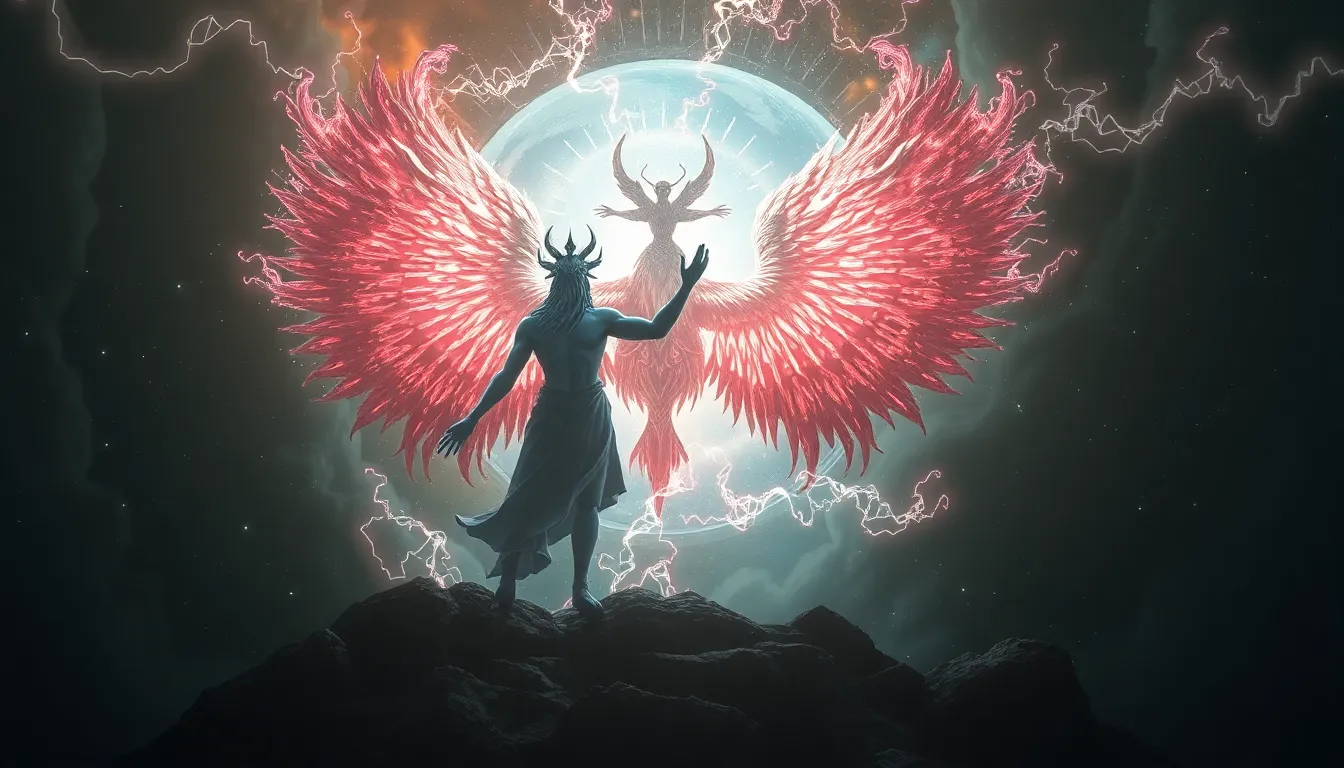The Golem’s Future: Examining the Potential Role of Artificial Intelligence in Jewish Thought
I. Introduction
The Golem myth, a cornerstone of Jewish folklore, encapsulates the complex relationship between humanity and creation. Originating in medieval Jewish texts, the Golem is often depicted as a man-made being brought to life through mystical rituals. Its significance extends beyond mere storytelling; it serves as a metaphor for human creativity, ambition, and the ethical dilemmas that arise from the act of creation.
In contemporary society, the emergence of Artificial Intelligence (AI) poses similar questions about creation, agency, and responsibility. With AI technology now capable of performing tasks that were once thought to be uniquely human, the relevance of the Golem myth becomes increasingly pertinent. This article aims to explore the intersection of AI and Jewish thought, examining how the lessons drawn from the Golem can inform our understanding of AI’s role in the modern world.
II. The Golem: Historical and Cultural Context
The Golem’s origins can be traced back to Jewish folklore, particularly in Eastern Europe. The most famous Golem story involves Rabbi Judah Loew of Prague, who is said to have created a Golem to protect the Jewish community from persecution. This narrative highlights several important themes:
- Creation: The Golem symbolizes the human desire to create life, reflecting a deep-seated need for agency and control.
- Human Agency: The act of creating the Golem underscores the moral responsibilities that come with such power.
- Societal Fears: The Golem also represents societal anxieties about uncontrollable forces, whether they be persecution, chaos, or the unknown.
Thus, the Golem serves not just as a mythical figure, but as a reflection of the hopes and fears of the Jewish people throughout history.
III. The Rise of Artificial Intelligence
The concept of Artificial Intelligence has evolved dramatically since its inception in the mid-20th century. Initially rooted in theoretical constructs, AI has grown into a multifaceted field encompassing machine learning, natural language processing, and robotics.
Today, AI technology exhibits capabilities including:
- Data Analysis: AI can process vast amounts of data, identifying patterns and making predictions.
- Automation: Many industries utilize AI to automate routine tasks, enhancing efficiency and productivity.
- Personalization: AI algorithms personalize user experiences in various applications, from online shopping to digital content recommendations.
However, the rapid development of AI also raises significant ethical considerations, including issues of privacy, surveillance, and the potential for bias in algorithmic decision-making. As we navigate this technological landscape, it is crucial to reflect on the implications of our creations.
IV. Parallels Between the Golem and AI
Both the Golem and AI share fundamental themes rooted in creation and the role of the creator. Here are some key parallels:
- Creation: Just as the Golem was brought to life through human intervention, AI is created by programmers and engineers, raising questions about the nature of intelligence and consciousness.
- Attributes: AI can embody characteristics associated with the Golem, such as strength, capability, and the potential for both good and harm.
- Responsibility: With the power to create comes the obligation to ensure that creations serve humanity positively and ethically.
Exploring these themes encourages a conversation about the responsibilities inherent in technological advancement and the potential consequences of our creations.
V. Jewish Philosophical Perspectives on Creation and Agency
Jewish thought offers valuable insights into the moral implications of creation. Key texts and teachings emphasize the importance of responsibility and ethical considerations:
- Creation in Genesis: The act of creation is framed as a divine responsibility, suggesting that creators must act with care and intention.
- The Talmudic Tradition: Discussions in the Talmud address the ethical implications of creating life, emphasizing the importance of safeguarding the created being’s welfare.
- Maimonides’ Teachings: Maimonides argued for the balance between innovation and ethical considerations, advocating for responsible use of knowledge.
These perspectives encourage contemporary thinkers to reflect on the ethical dimensions of creating intelligent beings, urging a balanced approach that honors both tradition and innovation.
VI. The Future of AI in Jewish Practice and Community
As AI technology continues to advance, its potential applications within Jewish rituals and community life are vast:
- Education: AI can enhance Jewish education by personalizing learning experiences and providing access to a wealth of resources.
- Rituals: AI could play a role in streamlining administrative tasks related to community rituals, allowing for more focus on spiritual engagement.
- Community Engagement: AI tools can facilitate outreach efforts, helping to connect with individuals and families in innovative ways.
However, integrating AI into Jewish life presents challenges, including concerns about technology overshadowing traditional practices and the need for thoughtful implementation.
VII. Ethical Dilemmas and Concerns
The potential misuse of AI raises ethical dilemmas reminiscent of the Golem’s cautionary tale. Key concerns include:
- Misuse of Technology: Just as the Golem could be turned against its creator, AI can be exploited for harmful purposes.
- Ethical Frameworks: Jewish thought offers frameworks for navigating these challenges, emphasizing justice, compassion, and accountability.
- Community Dialogue: Engaging in open discussions within the Jewish community can help shape a responsible approach to AI usage.
By addressing these concerns through a Jewish ethical lens, communities can work towards ensuring that AI serves humanity positively.
VIII. Conclusion
The lessons of the Golem resonate deeply in our contemporary exploration of Artificial Intelligence. As we stand on the brink of unprecedented technological advancement, it is essential to remember the moral responsibilities that accompany creation.
Jewish thinkers and communities are called to engage in thoughtful dialogue regarding AI, balancing innovation with ethical considerations. By embracing the future while honoring our rich traditions, we can navigate the complexities of AI in a manner that uplifts and enriches our lives.
Ultimately, the Golem’s story serves as a reminder of the profound implications of our creations—whether mythical or technological—and the importance of approaching them with wisdom and care.



